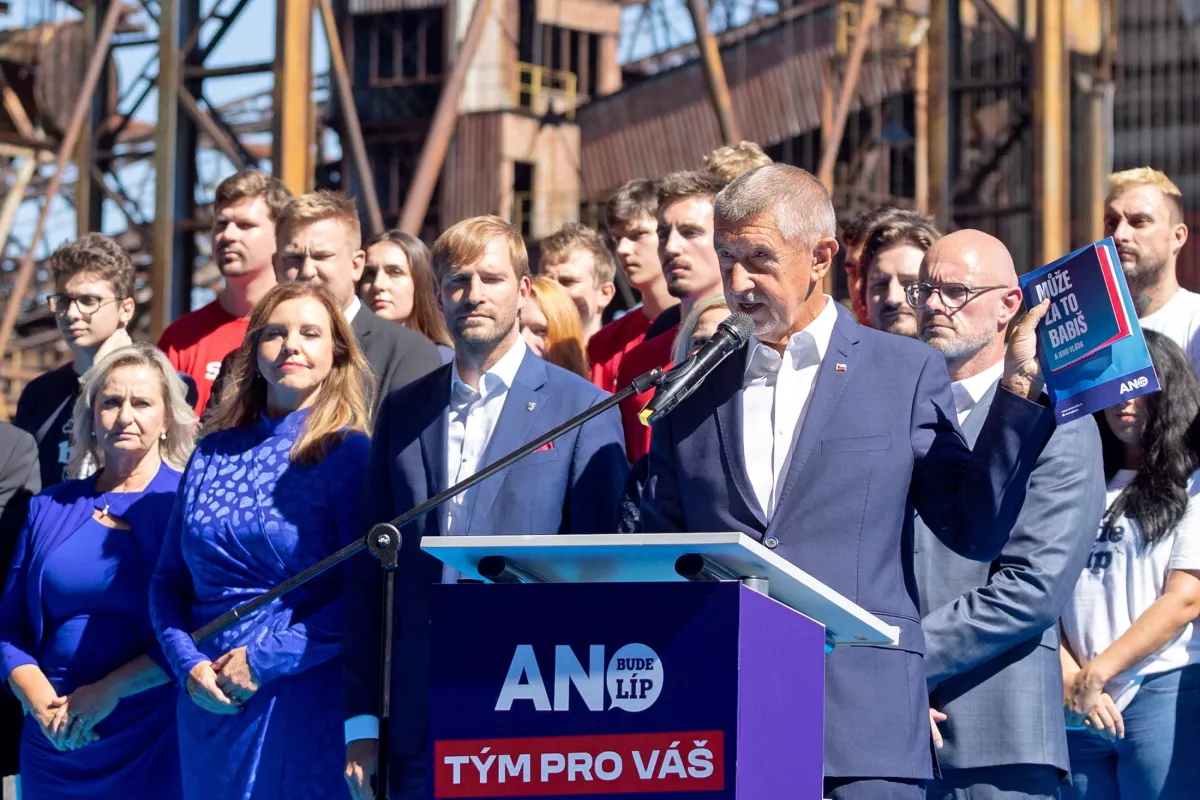Czechia says “Yes” to Babiš Right-wing ANO tops elections
In the elections for the lower house of parliament (Chamber of Deputies) in Czechia, the opposition right-wing party ANO (“Action of Dissatisfied Citizens”) led by former Prime Minister and 71-year-old billionaire Andrej Babiš won. After nearly 99% of ballots were counted, Babiš’s party secured 34.51% of the vote. The pro-European Spolu (“Together”) coalition, led by the current Prime Minister Petr Fiala, received only 23%.
Voter turnout was almost 69%—the highest since 1998. However, the high participation is understandable: perhaps for the first time in a long while, the situation can be described as pre-crisis—prices are rising, and the population’s purchasing power is falling faster than anywhere else in Europe.
Economic problems are directly linked to foreign policy issues, the main one being aid to Ukraine. As part of the programme supplying the Ukrainian Armed Forces with artillery shells, Czechia searches for shells worldwide and purchases them for Ukraine with support from other Western allies of Kyiv. In the spring, Ukrainian President Volodymyr Zelenskyy stated that Kyiv hopes to receive 1.8 million artillery shells under the “Czech initiative” by the end of this year.
Beyond direct military aid, Czechia has accepted almost 400,000 Ukrainian refugees. In the first quarter of this year, the state budget increased by approximately €124 million—the difference between the taxes paid by working refugees and the expenditures Czechia had to cover for them. The “Ukrainian” pressure on the Czech economy proved significant enough to become an election factor—many Czechs believe that Ukrainians are receiving too much assistance.
This partly explains the success of right-wing forces in the current parliamentary elections. During the campaign, Babiš repeatedly presented himself as a pro-peace candidate and called for an end to the war in Ukraine. In particular, he urged the termination of the aforementioned Czech initiative to supply artillery shells to Ukraine, arguing that it is too costly. At the same time, Babiš does not believe that military aid to Ukraine should be completely stopped, but he calls for the issue to be handled by NATO and the European Union.
The leader of the winning party is also sceptical about Ukraine’s accession to the EU and NATO. When asked by Ukrainian journalists, he replied: “But you are not prepared for the EU. We have to end the war first and, of course, we can cooperate with Ukraine, but you are not ready for the EU.”

Moreover, Babiš himself has established a reputation as a Eurosceptic, advocating for greater autonomy for EU member states. Many commentators believe that ANO’s victory, combined with Babiš’s alignment with independent leaders such as Hungarian Prime Minister Orbán and Slovak Prime Minister Fico, is certain to give Brussels a headache.
According to the election results, the leading party will not be able to form a government on its own. Babiš has already begun negotiations with the SPD—a far-right, anti-immigration party that received 7.8% of the vote—and “Motorists for Themselves,” another Eurosceptic party that won 6.77% of the vote.
Whether Babiš will assume the position of Prime Minister remains unclear. In Czechia, the decision on who should form the government rests with the president. Ahead of the elections, President Petr Pavel promised to respect the will of the voters, but he did not miss an opportunity to raise a potential issue that could hypothetically complicate matters for Babiš—he requested experts to assess a possible conflict of interest involving Babiš’s Agrofert holding. Babiš’s company has been under public scrutiny due to legal disputes over allegations of conflicts of interest and EU subsidy fraud.
It will be difficult to ignore Babiš’s victory, and he is highly likely to lead the government. However, he will face a challenging coalition. For instance, the “Motorists for Themselves” party advocates strict budgetary discipline, while Babiš has promised voters numerous initiatives that will require additional spending.

Meanwhile, observers note that Babiš is a flexible politician and is unlikely to act rashly, skillfully balancing his campaign promises with practical actions.
It is also emphasised that Babiš’s stance on Ukraine does not automatically indicate a pro-Russian tilt, although some sources have already reported Russian hackers attempting to influence pre-election public opinion in Czechia in favour of the billionaire. If true, this is understandable—Moscow does not need Europeans to cosy up to Russia; it is enough that they refrain from supporting Ukraine. Moreover, Babiš is known for his critical position on the green transition—he advocates revising the so-called European Green Deal, which entails high costs for greenhouse gas emissions and reductions in coal and oil consumption, a stance that also benefits Russian hydrocarbon interests.
Although the acronym ANO is often presented negatively, it has a very positive ring in Czech, as “ano” literally means “yes.” Regardless of Babiš’s actual policies, the elections in Czechia indicate a cooling of European public support for the war in Ukraine. For now, the water is only slowly wearing away the stone, and how close we are to a breakthrough—if at all—remains an open question.








